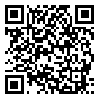BibTeX | RIS | EndNote | Medlars | ProCite | Reference Manager | RefWorks
Send citation to:
URL: http://irj.uswr.ac.ir/article-1-247-en.html
2- Department of Psychology, Harvard University, Cambridge, USA.
3- University of Marburg, Department of Germanic Linguistics, Marburg, Germany.
Objectives: Nouns and verbs are the central conceptual linguistic units of language acquisition in all human languages. While the noun-bias hypothesis claims that nouns have a privilege in children’s lexical development across languages, studies on Mandarin and Korean and other languages have challenged this view. More recent cross-linguistic naming studies on children in German, Turkish, English and Korean demonstrate that all languages, including Korean show a noun advantage however the degree of this discrepancy differs between languages. The aim of this study wasto look at object and action naming in normal Persian children as a measure of conceptual developmentin preschool children and its possible use for screening and therapeutic procedures.
Methods: In this analytical study, noun bias and processing dissociation of object and action naming in 64 three to six year old healthy monolingual Persian-speaking children was investigated. A black and white picture naming task, consisting of 36 nouns (natural and man-made), and 36 verbs (transitive and intransitive) was designed using DMDX software to measure response accuracy and reaction time of the subjects.
Results: The results indicate a significant noun advantage with regard to accuracy and naming latencies. The results also reveal that transitive verbs are named more accurately than intransitive ones in Persianspeaking children. Also,the data indicate that accuracy of object and action namingimprove with age (P=0.000).
Discussion: Based on the resultswe recommended that a standardized Persian object and action naming battery be used. Such a tool would have the potential of screening lexical development delay and possible noun-verb performance gap in preschool children.
Received: 2012/12/12 | Accepted: 2013/02/18 | Published: 2013/04/1





